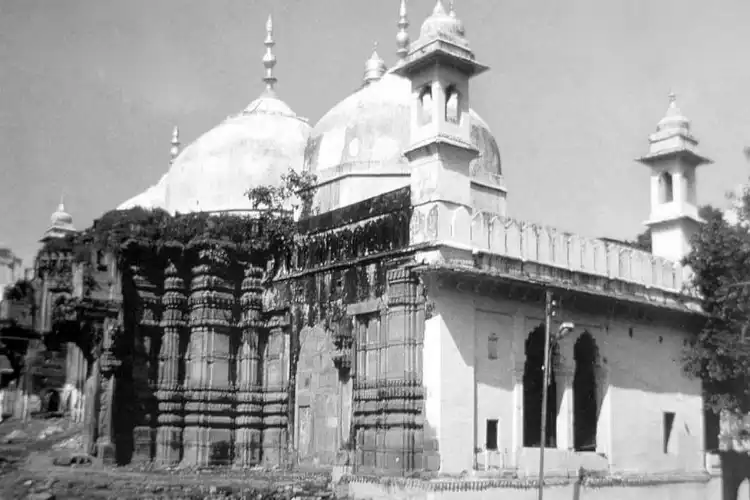
S M Khan and Sheheryar Khan
The much talked about Places of Worship Act, 1991 is again in focus in the light of a Varanasi Civil Court first ordering a survey of the Gyanvapi masjid and then closure of a portion of its premises where a Shivlinga was discovered in the survey. The mosque is situated adjacent to the Kashi Vishwanath Temple. The Court had appointed a commissioner to head the survey on a plea filed by five Delhi based women seeking permission to perform daily worship of Shringar Gauri deity located close to the outer wall of the Mosque. It is strange that while the petitioners’ prayer was about offering prayers and the Court ordered an inspection of the entire mosque premises, including the ‘mosque’ and the ‘tehkana’ which was not the subject matter of this civil suit.
The counsels for the Plaintiff in the Civil Suit stated that the order of the Civil Court ordering inspection of the Gyanvapi mosque premises is not in violation of the Places of Worship Act, 1991, as the Act, was enacted for freezing status of places of worship as they existed on August 15, 1947, and the prayer in the civil suit is not for changing the title of the place of worship, but to allow, pooja staphna at the Shringar Gauri.
However, the Masjid Committee has now taken up the case to the Supreme Court of India stating that the Places of Worship Act, 1991 prohibits any court proceedings in relation to religious institutions, which was also reiterated by the Apex Court in the Ram Janambhommi-Babri Masjid case , wherein, it had laid down that the Places of Worship Act, 1991 is a legislative instrument designed to safeguard the secular features of the country, one of the basic features of the Constitution.
It may be pertinent to point out that the Narsimha Rao-led Government enacted the Places of Worship Act, on September 18, 1991 for freezing status of places of worship as they existed on August 15, 1947. The act was passed one year prior to the demolition of the Babri Masjid. Even though the provisions of the Act did not apply to the Ram Janambhoomi-Babri masjid dispute it was still seen as an instrument of negotiating the dispute by building confidence in the Muslim community. The Act was a reassurance to the Muslim community that if they accept the claims of the Hindu organizations on the disputed site even then other mosques in the country should be protected and the status of the mosques throughout the country remains the same. The places of worship under the Act are not limited to mosques but include places of worship of all faiths including temple, gurudwara, church, monastery, etc.
The Act mandates that all suits, appeals any other proceedings with respect to converting the character of a place of worship, which are pending before any court or authority on August 15, 1947 will abate as soon as the law comes into force. This law is a special enactmentand prevails over any other law in force.
Also Read: Gyanvapi case hearing in Supreme Court today
It is to be emphasized that as the masjid intizamia has now approached the Supreme Court of India making the plea that the Places of Worship Act, 1991, prohibits any legal proceedings pertaining to the legal status of any place of worship which is applicable in the present case as well. It’s for the consideration of the highest court of the country, to exercise its inherent powers and stay the proceedings which are in violation of the Places of Worship Act, 1991 and have the potential of disturbing the calm and peace in the country and likely to open a Pandora’s Box. If such proceedings are allowed, it will give a false hope to the radical organizations to stake claims on various disputed religious sites and create fears in the mind of the minority communities. This will therefore have a cascading effect on the secular fabric of the nation.
(S.M. Khan is the Vice President of India Islamic Cultural Centre & Director Jamia Hamdard and Shahryar Khan is an Advocate of the Delhi High Court.)
